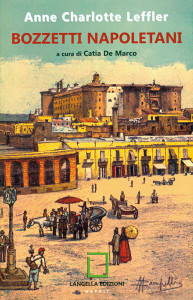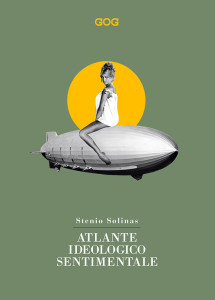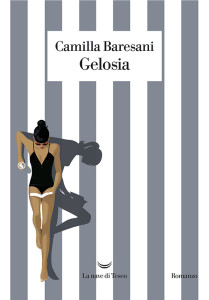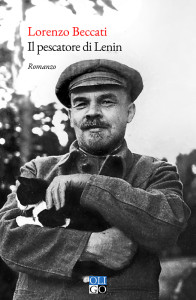 Anne Charlotte Leffler
Anne Charlotte Leffler
Bozzetti napoletani
a cura di Catia De Marco
Langella Edizioni Napoli • 15 €
Il libro è la prima traduzione italiana della raccolta di scritti nati durante il soggiorno napoletano dell’autrice svedese Anne Charlotte Leffler, nel 1888. Sono pensieri e descrizioni che parlano della bellezza dei luoghi e delle credenze popolari, dei sentimenti di stupore e di meraviglia che la realtà napoletana e del Sud hanno suscitato nel cuore di una donna fin troppo moderna e indipendente per il periodo in cui ha vissuto. Non poteva mancare l’Allegria di una giornata dedicata alla scoperta di Capri. | This is the first translation into Italian of the collection of writings by Swedish author Anne Charlotte Leffler, written during her stay in Naples in 1888. They express thoughts and descriptions of the beauty of the places, of the popular beliefs, of the feelings of wonder and amazement that the world of Naples and the South of Italy inspired in the heart of this woman, who was simply too modern and independent for the period in which she lived. And of course there couldn’t fail to be the Allegria (joy) of a day devoted to discovering Capri.
 Stenio Solinas
Stenio Solinas
Atlante ideologico sentimentale
GOG Edizioni • 27 €
«Ogni atlante, di qualsiasi genere, storico, geografico, astronomico, non è del suo autore, ma del suo lettore. Il primo offre uno strumento relativo al proprio campo di lavoro, ma è del secondo il privilegio e la libertà di scegliere il percorso o i percorsi che più sente suoi». Si parte allora, alla scoperta di luoghi fisici o della memoria, di paesaggi e gesta, ma anche di storie e aneddoti, personaggi e sentimenti perché ogni cosa vale la pena di essere indagata, tra queste naturalmente Capri. | “All atlases, of whatever kind, whether of history, geography or astronomy, belong not to their authors but to their readers. The author offers a tool related to their own field of work, but the readers have the privilege and freedom to choose the route or routes that they feel are most for them.” Let’s get going then, on the discovery of physical places or places in the memory, of landscapes and deeds, but also of stories and anecdotes, characters and feelings, because everything is worth investigating, including, of course, Capri.
 Camilla Baresani
Camilla Baresani
Gelosia
La Nave di Teseo • 18 €
La narrativa ci ha abituato alle storie di persone che da tutto il mondo arrivano a Capri per non lasciarla più. In questo caso, invece, Antonio sceglie di partire dall’isola natale per trasferirsi a Milano dove intraprende la sua carriera. Nel libro i luoghi descritti sono protagonisti tanto quanto i personaggi che restano imbrigliati in un triangolo amoroso. Quella di Camilla Baresani non è solo una storia d’amore, è soprattutto la descrizione impeccabile del tempo in cui stiamo vivendo. | Through fiction, we have got used to stories of people from all over the world who arrive on Capri and never leave. But in this case, Antonio chooses to leave the island where he was born and to move to Milan, where he embarks on his career. The places described in the book are the protagonists as much as the characters, who are caught up in a love triangle. Camilla Baresani’s novel is not just a love story: it is above all an impeccable description of the time in which we are living.
 Lorenzo Beccati
Lorenzo Beccati
Il pescatore di Lenin
Oligo Editore • 16,90 €
Perché Lenin andò a Capri? «Sono venuto […] per trovare un po’ di quiete e rilassarmi. Non intendo parlare di politica. Ehm, ehm. Il tempo della rivoluzione verrà, statene certi, ma non sarà oggi. È una bella giornata». Così ritroviamo il rivoluzionario russo a passeggio tra le stradine dell’isola o in barca che srotola la cima per aiutare Antò, pescatore di cui diventerà amico. Tutto il resto è storia. | Why did Lenin go to Capri? “I came […] to find some peace and quiet and to relax. I don’t intend to talk about politics. Hem, hem. The time for the revolution will come, you can be sure of that, but not today. It’s a beautiful day.” So we find the Russian revolutionary strolling through the streets of Capri or on a boat, uncoiling the rope to help Antò, the fisherman that he would become friends with. And the rest is history.





